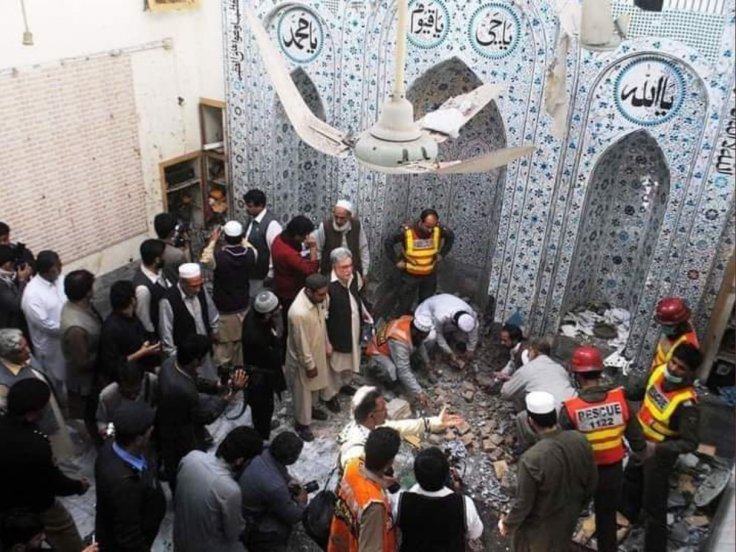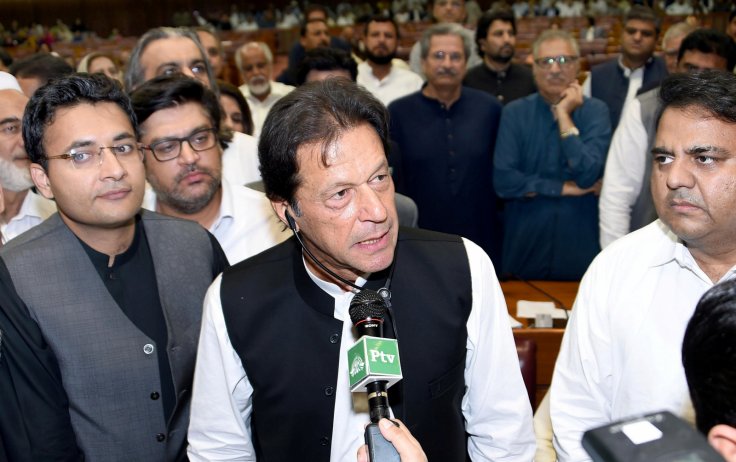At least 25 people were killed after two bomb blasts rocked the vicinity of political candidates' offices in the southwestern province of Balochistan in Pakistan, according to local authorities on Wednesday, raising concerns over security ahead of the Thursday elections. Several others were also injured in the blasts.
Pakistan goes to the polls amid rising militant attacks in recent months, coupled with the jailing of Imran Khan, the winner of the previous national election. Despite facing an economic crisis and various challenges threatening the nuclear-armed nation, Khan continues to dominate the headlines. The first explosion killed 14 people outside the party office of an independent candidate in the Pishin district.
Unrest Ahead of Elections

A second blast occurred in the Qillah Saif Ullah district, around 93 miles away, resulting in the deaths of eight more people. Officials have announced plans to enhance security measures at polling booths in response to the increased threat.
It is not immediately clear who was behind the attacks.
Various factions, including the Pakistani Taliban and separatist groups from Balochistan, harbor opposition against the Pakistani state and have conducted attacks in recent months.
Khanzai hospital, located near the Pishin blast site, reported a death toll of 12 and said that over two dozen people were injured.
Deputy Commissioner of Pishin district, Jumma Dad Khan, confirmed that the blast resulted in numerous injuries.
The attacks occurred as political parties ended their campaigning during the mandatory quiet period mandated by electoral regulations on the day preceding the election.
Former Pakistani Prime Minister Khan, currently in jail, advised his supporters to remain outside polling booths after casting their votes. Meanwhile, rival political parties organized major rallies to commemorate the conclusion of the election campaign period.
Pakistan Under Attack

The gathering of a considerable number of supporters of Khan near polling booths could potentially escalate tensions, given their concerns about a perceived military-backed crackdown on him and his party, resulting in limitations on campaigning.
The military denies any interference in politics.
"Encourage the maximum number of people to vote, wait at the polling station ... and then stay peacefully outside the Returning Officer's office until the final results are announced," said Khan via his handle on social media platform X, accompanied by an undated photograph showing him wearing simple black clothing.
The source of the image, which marked the first visual appearance of Khan in months, remains unclear. In the past, Khan's supporters have shared his messages, including AI-generated audio speeches, based on notes he has conveyed through his lawyers during prison visits.
Other political parties have also ended their election campaigns.
Nawaz Sharif, the leading contender in the elections, led a massive rally in the eastern city of Kasur.
Former Prime Minister Shehbaz Sharif, who is contesting in that constituency, along with his brother, drew tens of thousands of supporters waving green party flags the event.
Sharif urged the country's huge youth population to back his party and directed criticism at Khan, who has previously garnered support from young voters in the region.
"Don't fall for him," Sharif said.
In the southern city of Larkana, supporters of the opposing Pakistan People's Party assembled, led by Bilawal Bhutto Zardari. Zardari's role could be crucial as a potential king-maker if no single party secures enough parliamentary seats to independently form a government.









